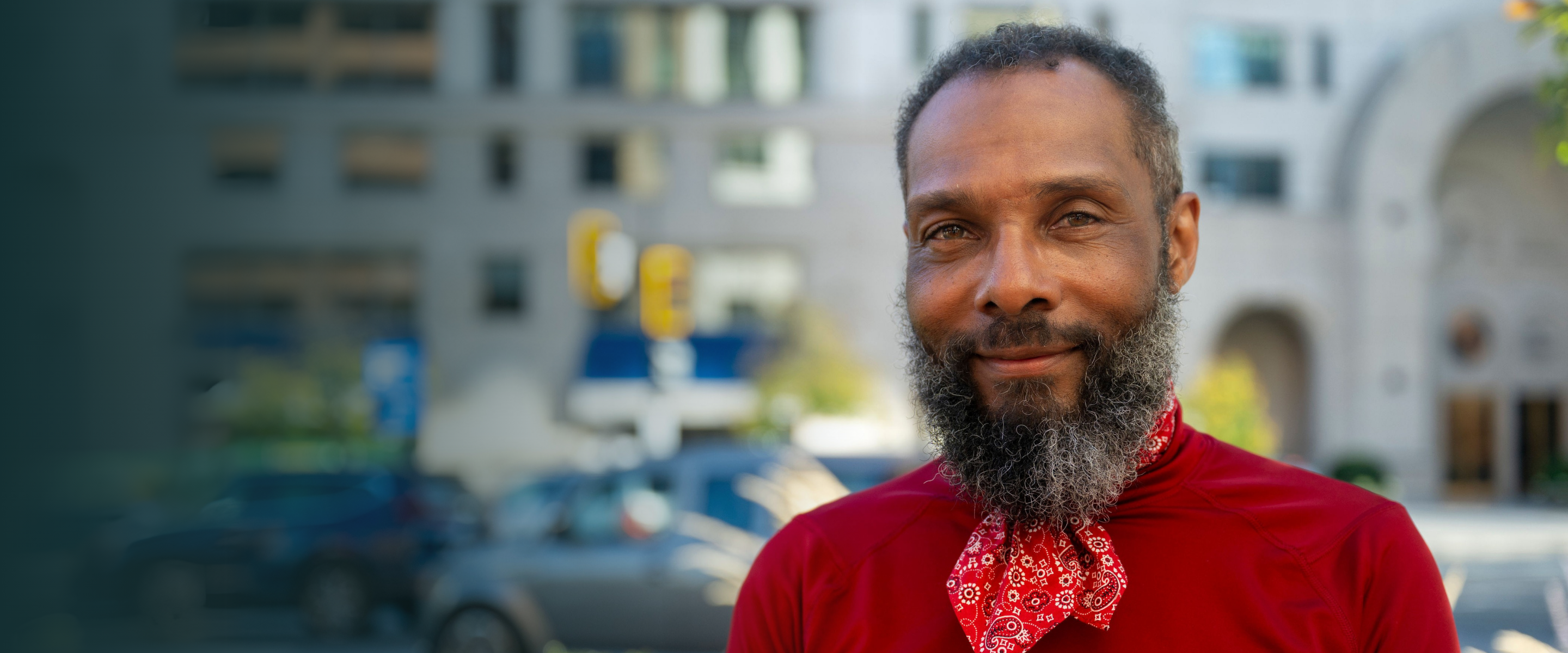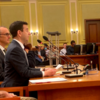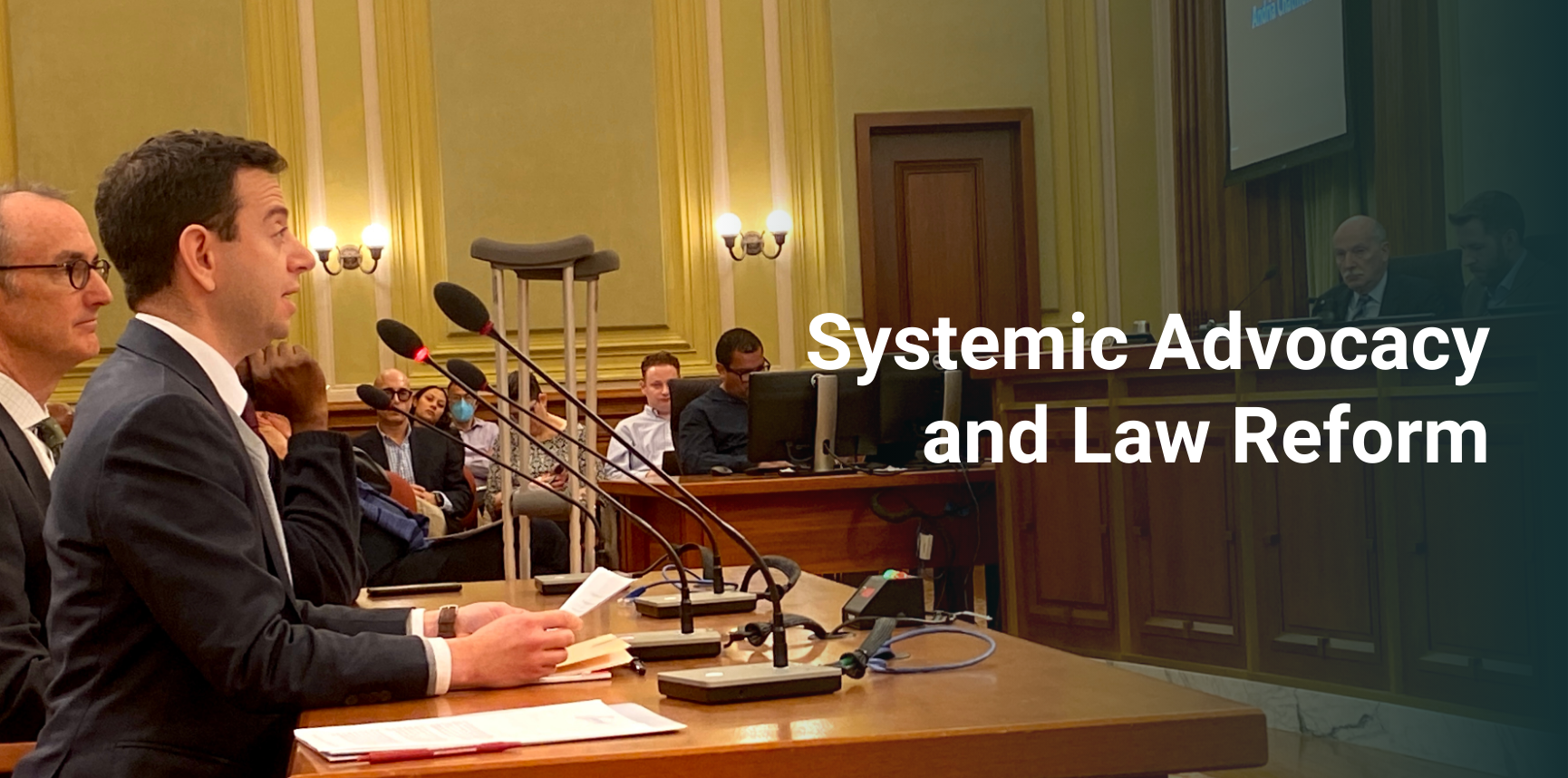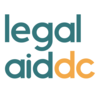While individual representation is at the center of our work, Legal Aid DC also works to identify recurring problems that our clients face and address them at the systemic level. This advocacy benefits tens of thousands of people throughout the District on top of the thousands who receive direct legal services.
Legal Aid’s Systemic Advocacy work includes Impact Litigation, Policy Advocacy, Appellate Litigation, and Community Lawyering. We use all of these strategies to make significant changes that benefit our client community. For example, at the beginning of this year, we prepared a major impact litigation suit — with our pro bono partners at Zuckerman Spaeder — to challenge the Department of Human Services’ refusal to implement an increase to nutritional assistance benefits required by a law that the Council passed. We engaged in policy advocacy for this appropriation in the first place, worked with the Council to garner support for our legal strategy, and engaged the community on the importance of increasing benefits. Thanks to this integrated advocacy strategy, the Administration backed down and agreed to implement the benefits that went to nearly one in five District residents. Our Policy Advocacy team continues to advocate for increased nutritional assistance based on the needs we see through our direct representation and community engagement work.
During 2024, our Impact Litigation team filed several lawsuits on behalf of our clients, including a lawsuit on behalf of tenants at Minnesota Commons, whose building was sold in violation of the Tenant Opportunity to Purchase Act. Another example of our work this year is a wage theft complaint against a company denying immigrant workers the wages to which they were entitled. Our suit seeks unpaid wages, damages, attorney’s fees, and an injunction requiring the company to comply with the DC Wage Payment and Collection Law and the DC Minimum Wage Act.
Our Policy Advocacy team has been working on several pieces of legislation with serious implications for our client community. Earlier this year, the DC Council passed temporary legislation that rolls back tenant protections and creates unnecessary hurdles for tenants who need emergency rental assistance. Legal Aid DC successfully advocated for several amendments that restored some protections to vulnerable tenants and is continuing its advocacy to guarantee protections for tenants in permanent legislation, including testifying in front of the DC Council this November.
This year, Legal Aid celebrated the 20th anniversary of the Barbara McDowell Appellate Advocacy Project. Over the last two decades, the Project’s work has set precedents that benefit people throughout the District, including a recent victory that protects the rights of tenants to have evidentiary hearings when they face deplorable housing conditions.
We’ve also continued to strengthen our Reentry Project, which works to remove the barriers to housing, employment, and other opportunities that are often the result of a criminal record. In October this year, in response to a call to action from the White House counsel, the Project hosted a Marijuana Pardon Clinic in partnership with Simpson Thacher & Bartlett.
Finally, Legal Aid’s Community Lawyering team works to ensure that our services are accessible to the people who need them. In 2024, the team has met with potential clients at more than 60 tabling events, legal clinics, and Know-Your-Rights trainings, including a training in collaboration with the DC Board of Elections to help eligible non-citizens register to vote.
Most recently, Megan Browder joined Legal Aid in November as Director for Systemic Advocacy and Law Reform. She comes to us from the Office of the Attorney General for the District of Columbia, where her most recent role was Director of Federal Initiatives. As we prepare for 2025, Legal Aid DC is confident that our Systemic Advocacy team will work diligently to protect the rights of our client community across the District.













